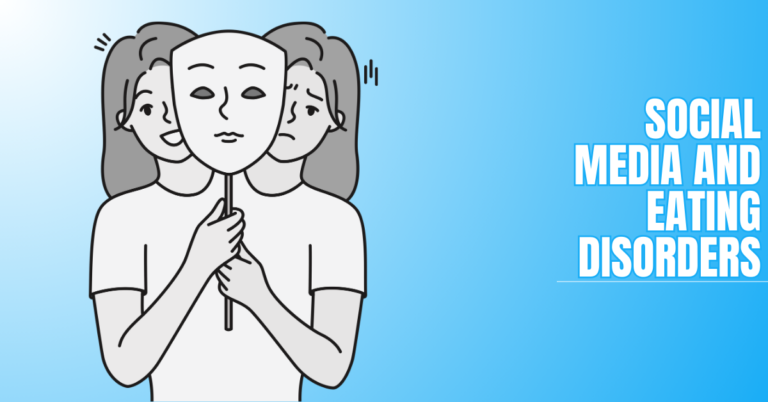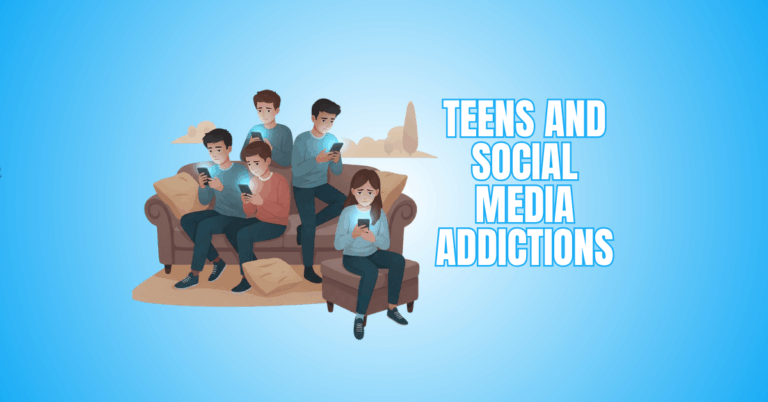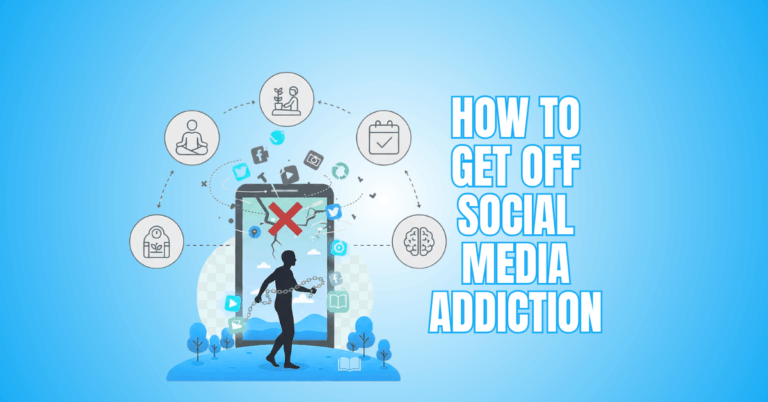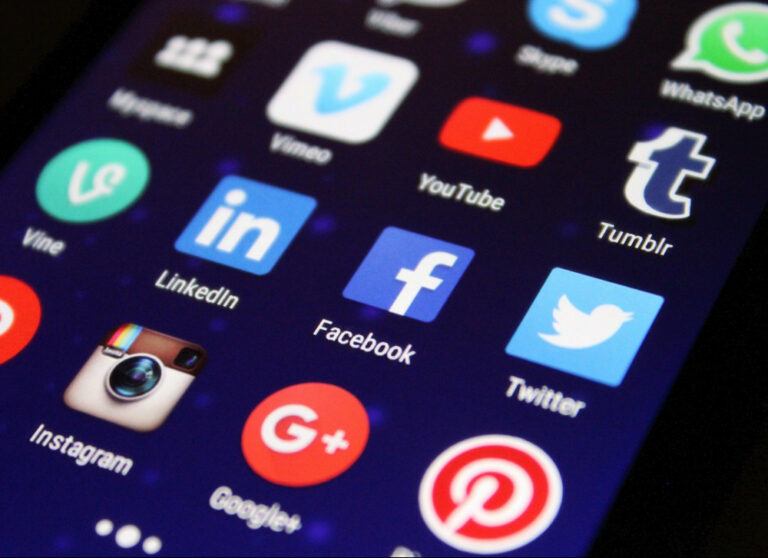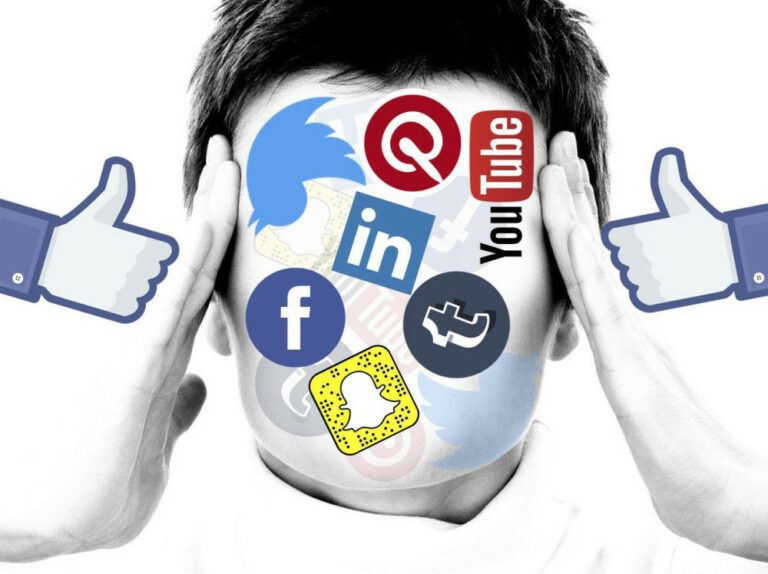Can Social Media Cause Anxiety
Can Social Media Cause Anxiety?
The rapid growth of social media over the last decade has established an entirely new medium for human interaction. Online platforms such as Facebook, Twitter and Instagram have allowed people in every corner of the world to be connected 24/7. By 2021, it is forecast that there will be around 3 billion active monthly users of social media. From the statistics alone, it’s clear that social media has become an integral (and to a large extent, unavoidable) part of our lives.
One implication of social media’s rapid rise, that of its relationship with young people’s mental health, has gathered a significant amount of attention in recent years. Research has created a wide evidence-base supporting an association between social media use and mental health, and although still emerging, new evidence has painted a broad picture of the main impacts. The popularity of social media as a medium of communication for young people needs to be carefully examined, as it may indeed come to play a more detrimental role than we might have thought.
Many people in today’s world live with their smartphones as virtual companions. These devices use electronic social media networks that alert users to updates on friends, favourite celebrities, and global events. Social media has become firmly integrated into a lot of people’s daily lives. According to the Pew Research Center, 72 % of people in the United States now use social media.
As with every technology, there is a side that is not so good. In particular, social media can have a negative impact on teens who suffer from, or are susceptible to, mental illness. The National Institute of Mental Health reports that the lifetime prevalence of any mental disorder among adolescents is 49.5%, and 22.2% of adolescents will suffer from severe mental impairment in their lifetimes. Also, young adults (age 18 to 25) have the highest incidence of mental illness of any adult age group: 25.8%, compared to 22.2% for ages 26 to 49, and 13.8% for ages 50 and up.
Want to Start Making Money Online?
Try My #1 Recommendation Program!
The three most popular social media platforms among teens are YouTube (used by 85% of teens, according to Pew Research Center’s 2018 survey), Instagram (72%) and Snapchat (69%). The percentage of teens who report using Facebook declined to 51% in 2018 from 71%, according to a 2014-2015 teen survey.
According to a 2018 report issued by GlobalWebIndex, people ages 16 to 24 spent an average of three hours and one minute using social media each day. However, research reported in the journal JAMA Psychiatry found that adolescents who use social media more than three hours per day “may be at heightened risk of mental health problems, particularly internalizing problems.”
Social media can and does have a positive effect on children and teens, whether by teaching social skills, strengthening relationships or just being fun. Persistent use of these social platforms can also have a negative impact, particularly on the mental health and well-being of young users.
Children, parents and teachers need to understand the full impact of social media use by adolescents and teens, especially the risks these services pose on their mental health. The tools, tips and resources in this guide can help ensure that the use of social media by young people strengthens their personal social network and improves their general mental wellness.
At its core, social media is a powerful communication tool that has changed how individuals interact with one another. It speeds up how people exchange and share information, thoughts, and ideas across virtual networks. However, social media does have downsides. Some evidence suggests that its use — in particular, its overuse — can negatively affect mental health in numerous ways.
The main problem with social media and its impact on mental health has been the complexity of the relationship that digital networks have with us. When we are sitting in front of our computer screens, we feel connected to each other, but we also can experience a lack of connection with other people.
This disconnection is associated with an increased tendency towards loneliness. Not only does this make us feel “less than” the online relationships that we imagine with other people, but also this simple lack of human connection can actually become an anxiety-triggering situation.
Anxiety is a psychological term that describes the unpleasant sensation that some of us experience when there is uncertainty about the future, and our expectations are not being met.
Social Media And Mental Health
While social media does appear to be an unalloyed benefit for many young people, it also comes with a risk of mental health implications, as many studies have found. The first of these comes from Facebook’s own research, which found that using Facebook can lead to feelings of loneliness, particularly in its users aged 18 to 24 years. This is particularly pertinent in this group, given that it is the first age group to have come of age using social media.
The use of social media has risen dramatically, particularly among young people, with around two-thirds of young people owning a social media account. For many young people, social media is a source of positive and social interaction.
Indeed, one of the chief arguments put forward in the case for allowing teenagers to begin using social media is that they are socializing in the real world, but adding a new virtual dimension to that socializing – allowing them to spend time with their friends, communicating, and sharing experiences. While the same could be said of any social activity, we now have data that indicates that there may be more drawbacks than positives.
What Is Social Media Anxiety?
Social media anxiety is a condition where people spend a significant amount of time on social media and become obsessed with the number of likes or followers they have on different platforms. Their anxiety can sometimes lead to people posting and sharing things that could be perceived as excessive, for example repeatedly updating their Facebook status every day.
Want to Find Out How To Start Your Home-Based Business?
Try My #1 Recommendation Platform!
Factors That Trigger Anxiety When Using Social Media
For many, social media provides both a platform for communication and a self-preservation mechanism, to ensure privacy and a less intrusive online experience. Since the early years of social media in the 2000s, a new feature on many platforms was the prioritizing of image sharing.
This presents itself in a number of different ways: people can privately upload images and videos, or a network of friends can browse pictures on a shared network. Content such as photos and videos on social media can be shared to generate popularity, as well as make new connections or find other networks to network in.
What Is Causing It?
First, it’s commonly a fairly new phenomenon, so people are still adapting to it and may not have developed coping strategies for the way in which it affects their lives. This means that they have less experience with how to manage anxiety and how it affects their day-to-day lives.
No doubt, a large part of the psychological burden of social media is caused by its persistent addictive nature. Although it was once used to connect people around the globe, social media now finds itself a major hub for engagement. Advertisers see it as a new avenue for interaction and usage, and once users’ daily usage reaches the upper limit, it is hard to ever come down from its highs.
Although everyone who uses social media experiences a high level of fatigue, it is very important to note that the association between its use and mental health issues does vary depending on age group. For young people who use it heavily, it is argued that it affects their mental health in a negative way.
The Effects Of Social Media On Mental Health
Of particular interest are the psychological impacts of social media usage. In particular, social media could cause an imbalance of information on social life, in which people’s own experiences, which are important to their development, are less recognized.
Social media use, like television and radio, can reduce awareness of one’s own life and the lives of others, and can lead to isolation. Thus, social media could lead to psychological distress as a result of being reminded of the unappreciated realities of everyday life.
When people are exposed to an excess of information, they become more susceptible to making decisions based on inaccurate information or faulty information.
Social media users are, perhaps, more vulnerable to the effects of social anxiety. Not only are they more likely to have had this experience, but they are also more likely to experience it and experience it more intensely, which can lead to an avoidance of social interactions. They are more likely to feel anxious if they are consistently exposed to anxiety-inducing situations or thoughts.
So, as a user, if you scroll through Instagram and see some perfectly laid out brunch menu, but can’t recall the last time you went out to eat or had a social event, this could mean you are experiencing social anxiety. Not only this, but online interactions can leave users exposed to the criticism and aggression of their peers, and even directly impacted upon by their negative comments.
While the risks of social media and related health outcomes have been widely explored in this report, it’s important to note that the issue is not black and white. For example, while social media has a negative impact on young people’s mental health, it has been found that increased daily time on social media is associated with lower levels of anxiety. This difference may be related to more traditional forms of social media. The more socially connected young people are, the less depressed they tend to be.
The results also suggest that young people who spend more time on social media experience greater mental health risks, but the results suggest the opposite for those who spend less time on social media.
>>>Please click here to read more about Stress And Anxiety Relief on my Close To Nature website<<<
How To Reduce Social Media Anxiety
Social media anxiety can be a more problematic expression of already existing mental health difficulties, and here is where it is important to make an assessment and speak to a professional. Taking the time to understand the scope of the issue is crucial – particularly when it comes to young people.
Of course, there are dangers of over-diagnosing and over-diagnosing, and young people can certainly be anxious about the majority of things that make them feel uncomfortable in life. However, looking closely at what actually feels stressful or stressful at the moment is essential, as part of an ongoing therapeutic conversation.
There is no concrete answer to how we can reduce this anxiety. From individuals who need to make changes themselves, and also work with their peers and teachers in schools, to those who believe that some of the underlying causes of anxiety, such as modern communication or social networking sites, need to be addressed.
Moving beyond simplistic questions such as, “Is it social media or is it me?” and more seriously, “Can we feel this anxious about social media, or should it simply be the case that people are becoming more anxious?”, can only lead to limited understanding of the problems and causes. Ultimately, the issue isn’t so black and white and needs to be addressed on many levels.
Social media is a convenient tool for young people, and they love it. However, it can be increasingly difficult for young people who are already experiencing mental health problems to cope with constant exposure to social media’s stream of depressing, anxious and unrealistic content.
Social media has become a significant contributor to our mental health, but perhaps it is time to consider whether the addictive nature of social media is the cause or just an indicator of more serious underlying issues.
When Should We Take A Break Using Social Media?
There is some evidence that encouraging young people to take breaks from social media can help them build positive associations with the platforms, and enhance resilience to the potential negative effects. The issue of whether it is appropriate to let children take breaks from social media has been hotly debated.
Some researchers have argued that taking breaks makes little difference to children’s well-being, while others have noted the importance of encouraging children to engage in positive social media practices, such as just being mindful of others online.
The link between social media and anxiety is established, but, as with any link, there is not always clear causation. There is, however, enough research to suggest that using social media too often can contribute to low mood, such as we see with the use of smartphones.
For example, one study conducted by Facebook concluded that the mere presence of a Facebook account was associated with a greater likelihood of anxiety symptoms, and the use of Facebook apps on mobile devices was also associated with an increased risk of using Facebook, including apps that allow users to post to their Facebook feed. But Facebook is only one example of a technology that can be associated with poor mental health. Countless applications and social media platforms also pose a threat to mental health.
Are You Tired Of Scams?
Try The Most-Trusted Training Platform To Make Money Online!
Not Everything Is About Social Media
As a psychologist, I see a parallel between the rise of social media and the popularity of the concept of the selfie. In some ways, the popularity of the selfie mirrors the increasing popularity of social media: both are pictures of individuals and focus on their presentation.
The selfie began as a way to document individuals in times when photography was not as common but has since grown into an activity in and of itself. People take selfies in all sorts of situations; the selfies we post on social media focus on our outward appearance rather than what’s happening internally.
In the same way, we can see how the rise of social media has created a generation that is very self-focused, always thinking about how they appear rather than simply being themselves.
Social media itself may not be so bad – although many young people still experience negative outcomes, the nature of these may be changing. People might use social media to make sense of the world around them and to network, explore interests, and self-identify. In addition, some research suggests that young people may be using social media for attention and validation, and to access support services, to a greater extent than previous generations.
Nonetheless, researchers are increasingly highlighting the potential negative effects that social media can have on mental health. One aspect is the ability for young people to process and interpret their experiences in an online space, with the result that they are at greater risk of suffering mental health problems.
Talk To A Mental Health Professional
Remember that you are not alone and that you can talk to a mental health professional if you are experiencing any of the feelings, thoughts or behaviours above. Someone you trust can help you work through your problems, and to know that you are not alone.
Social media’s role in mental health must be placed in context. The impact of any single factor cannot be assessed in isolation and we must avoid attempting to draw conclusions about the effects of social media in isolation without carefully examining all the factors at play.
We must be mindful that there is a wide range of potential influences that may contribute to or cause the negative impact social media can have on young people’s mental health, and social media itself is only one of them.
Live A Life Outside Of Social Media
In places such as the UK, social media is used extensively as a source of entertainment and communication. The role it plays as a source of social comparison, however, has attracted a considerable amount of debate and research. Even when the content is posted or shared is innocuous, research suggests that social comparison can be harmful, and has the potential to create negative and self-defeating behaviours.
As simple as it may sound, taking a step away from social media might be a good start.
It’s not all doom and gloom, however. There is a large degree of variation between individuals with regards to their own usage of social media, both in terms of the amount of time spent on it and the amount of content they engage in. This is partly due to a degree of individualism that is inherent in our culture.
Some people might just be into the small stuff (e.g. sharing funny videos on social media, expressing thoughts in creative ways on Twitter) and may even feel better about themselves for doing so. On the other hand, those who have spent a lot of time on social media might experience excessive fear of missing out or feel that they don’t have the time to engage in other activities.
Conclusion
There is a positive and significant role for social media use within education. Social media is part of a bigger picture of digital communication and social relationships, which is hugely positive for young people’s lives and their ability to learn.
However, what is emerging is that the active use of social media has become a dominant aspect of young people’s lives – to the point that they are unable to separate digital interactions with other people from real-life interactions. This means that social media can be seen as part of a pattern of avoidance or avoidance of real-life social interactions.
Young people face a wealth of challenges, from increased levels of stress, anxiety and loneliness to wider societal pressures. It is reasonable to expect that a generation raised in an increasingly digital world, where young people are constantly inundated with negative messages about the risk of addiction, social media addiction can contribute to this increased stress, anxiety and loneliness.
There is a place for social media, but young people need to make wise choices and limit their exposure to the potentially negative effects. Having a good sense of how much social media they are using, and how much time they spend on it overall, is important for young people.
I trust you enjoyed this article about Can Social Media Cause Anxiety. Would you please stay tuned for more articles to come? Take care!
JeannetteZ
Want to Learn How to Build Your Own Home-Based Online Business & Start Making Money Online From Your Comfortable Couch?
Try Wealthy Affiliate!
Your Opinion Is Important To Me
Thoughts? Ideas? Questions? I would love to hear from you. Please leave me your questions, experiences, remarks, and suggestions about Can Social Media Cause Anxiety in the comments below. You can also contact me by email at Jeannette@WorkFromAnywhereInTheWorld.com.
>>>Please click here to read more about Stress And Anxiety Relief on my Close To Nature website<<<
Here are some of my favourite blog posts:
Are Social Media Friends Real Friends
How To Use Flickr To Get Unlimited Free Traffic
Benefits Of Social Media Friends
Social Media Friend vs Real Friends
How To Avoid Copyright Infringement On social Media







